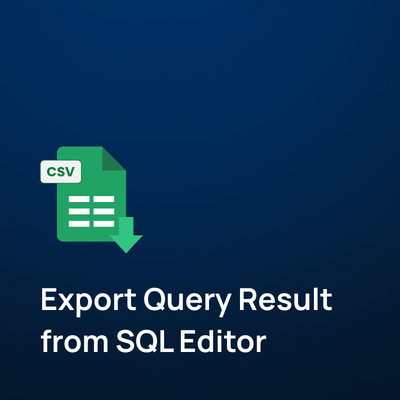We asked 85 leaders about their data operations, the value of data and c-suite reporting.
To understand the current challenges and future priorities of data operations, we surveyed 85 data leaders across multiple global verticals - from retail to marketing, from software to fintech.
The CEOs, CTOs, CCOs, VPs of Data, and Heads of Strategy all chipped in to unveil how they run data operations today and what they foresee in the future of data operations.
Data priorities are shifting from performance reporting to embedding data in products and operations
88% of data leaders primarily use data within their startups and enterprises for performance reporting. Tracking KPIs and OKRs fulfilment is a cornerstone of data usage within companies.
But data goes beyond reporting.
A whopping 71% of C-suits also reported using data to test their marketing, sales, and operational hypotheses, showcasing how the leaders are tapping into the informational resources for data-driven decision-making.
More than half of data leaders are also pioneering or fully-productizing data enrichment for product development and operations. From embedding customer data into their CRMs and communication strategies to building personalization algorithms using historical customer data.
The data within organizations is being refined to extract value beyond performance tracking.
The data-driven solutions of modern enterprises are geared towards customer-centricity to better understand customer drivers through data (acquisition, churn, and satisfaction modeling), and advanced machine learning practices, to predict supply and demand.
What matters in a C-suit report?
Data leaders are laser-focused on performance, but the classic KPIs reports offering digests of sales, finance, marketing, and other metrics are insufficient.
C-suits are progressively tracking more fine-grained metrics, such as teams’ and individuals’ KPI reports.
The need to better understand - and manage - data and teams drives the perceptions of what C-suits deem absolutely necessary for their reports:
- 55% of data leaders deem fresh status updates critical for their effectiveness.
- 54% of C-suits believe universal access to data and KPIs for every company member is a must-have if the company wants to succeed.
- 40%+ of decision-makers necessitate the need to go beyond the first-level reporting. Digging into the data and the causes behind the numbers has become a must-have in data operations and reporting.
Data leaders are united: in order to have effective reports that drive change within their organizations, the data needs to be constantly fresh, widely available, and granular enough to answer follow-up questions.
What data is needed on a daily basis?
Data leaders agree: lagging metrics are necessary but insufficient to run daily operations.
In the past, lagging metrics - such as the number of new customers acquired in a day, daily revenue, and other metrics that report past successes - were the epitome of performance reporting.
The modern data leader needs to see a more sophisticated picture of the past and future for their daily operations.
The surveyed C-suits reported additional metrics they look at every to get a clearer picture of their operations:
- Baseline changes. Data leaders are preoccupied not just with absolute numbers but have a more refined understanding of variance and seasonality. They look at KPIs through a lens of anomalies: “Is the number of new customers unexpectedly high and we need to investigate what drove the sudden growth spurt? Is the fall in revenue significant enough to warrant research, or can we attribute it to seasonality effects?”
- Data quality monitoring. Decision-makers are progressively more interested in the quality of data. From monitoring data pipelines to securing regulatory data protection, the data leaders do not worry just about the content of data, but also regularly check into the quality assurance of their data operations.
- Forecasting. Understanding what the future will (most likely) bring is a common theme in regular leadership decision-making. The forecasting models are adjusted as new data pours in. Using the recent past to understand the most likely future helps decision-makers make the best next step.
Whether data leaders look at KPIs fulfilment, anomalies in data, data quality, or their forecasting models, they all have a bias for action.
“We want to see daily the data which we can influence in the same day. Mostly inputs from clients. NPS details, complaints, requests, leads, and so on. It is not wise to read data that you can not influence. It just adds more complexity to decisions.”
Who in the company is responsible for data and data operations?
From Marketing collecting leads to Sales entering prospects into Hubspot, from Finance sharing their revenue forecasting, to Engineering building machine learning models into your core product, who should be responsible for data?
The data leaders tell a story of different implementations. Some companies are driving data adoption via the IT department, others are building units of excellence in each department separately.
But 72% of data leaders agree - for data adoption to be successful, a C-suite leader should drive the efforts throughout the company, showing the way and value of data.
But this can be difficult when not all departments have the same level of data maturity and data literacy.
The tradeoffs between embedded and centralized data teams are a common consideration among the data leaders.
“Departments should be given as much autonomy as possible; however, things like master data need to be aligned across the company.”
What will drive the future priorities in data operations?
Three different challenges are currently filling the schedules of data leaders:
- Data adoption. Make sure data is being used in decision-making and streamlined within all company processes.
- End-to-end data automation. Automating data collection, cleaning, loading, metrics computation, and reporting across the company.
- Data literacy. Having data is not enough. Teaching people how to properly interpret data and make the best choices given the data is another challenge on the to-dos of data decision-makers.
To take the data beyond BI tools and foster (informed!) data adoption across the company and within the products, data leaders are facing many cultural and technological challenges.
Keboola can assist them along the way. It is built for automating end-to-end data pipelines, monitoring the quality of data jobs, and fostering a common understanding of data across departments with its Data Catalog.
If you haven’t already, give it a go. Keboola offers a no-questions-asked, always-free tier, so you can play around and build your pipelines with a couple of clicks.



.png)


.png)

